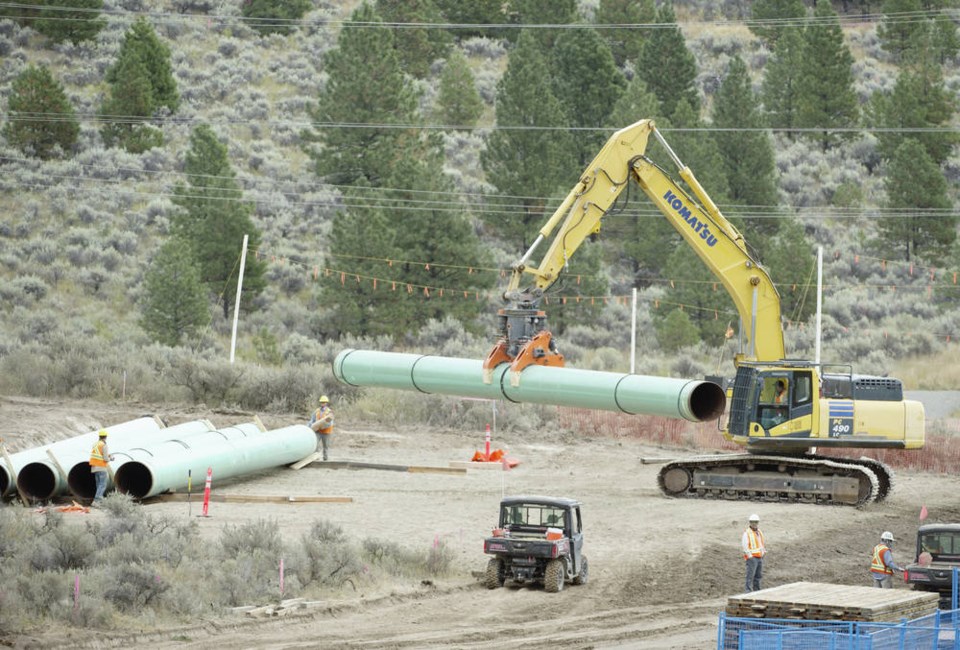Two weeks ago, my column on why we need to stop subsidising industries that harm our planet and our health was published at the height of the heat emergency that affected B.C., killing hundreds of people and setting off large and deadly forest fires.
So why on Earth are we spending scarce public resources to prop up the fossil-fuel industries that are the underlying cause of the climate emergency and that we need to wind down?
I could understand if the funds were being used to transition those industries and their employees into clean and renewable energy production. But too often, they are used to support business as usual.
The most recent example of this idiotic approach is a new report from the International Institute for Sustainable Development in Winnipeg.
Looking at three as yet uncompleted pipelines (Trans Mountain, Keystone XL — now cancelled — and Coastal GasLink), they found “cumulatively, Canadian governments have provided over $23 billion in government support since 2018.”
Much of that is in the form of loan guarantees rather than direct funding.
But as the report’s author, Vanessa Corkal, noted in a July 7 Times Colonist article, such loans and guarantees “encourage companies to make choices they wouldn’t otherwise make.” They may have some short-term benefits, but they mean other, wiser long-term choices are not made, making this a betrayal of future generations.
It’s not just the fossil-fuel industry. There are many other examples of counter-productive uses of public money to prop up industries and practices that are harmful to people and the planet.
A January 2020 report on “Subsidising extinctions” by three UBC scientists in the journal Conservation Letters noted: “In 2010 world governments agreed to eliminate, phase out or reform incentives that harm biodiversity by 2020.” Yet, they added, “few governments have even identified such incentives, never mind taking action on them.”
There is a local example of this right here in B.C., noted Dr. Jessica Dempsey, the lead author for the UBC study noted above. They looked at three coal mines in northeastern B.C. that are located in the home of the threatened Central Mountain caribou. The mines benefit from the mineral exploration tax credit.
A December 2020 UBC news release quotes Dr. Dempsey: “Our research shows that not only do the costs of mining activity in northeastern B.C. outweigh the benefits, but the public is in fact helping to fund the extinction of caribou by subsidizing exploration and development.”
Then there are fisheries. Rashid Sumaila, a professor at UBC’s Institute for the Oceans and Fisheries and director of the Fisheries Economic Research Unit, co-authored a 2019 UBC study in the journal Marine Policy on the impact of subsidies on small-scale fisheries. They found that in 2018, of the total $35.4 billion US in subsidies, globally, $22.2 billion, or 62 per cent, went to “capacity enhancing” activities, which illogically seek to increase fishing capacity at a time when the world’s oceans are already heavily overfished.
Here in Canada, they reported, 45 per cent of the $853 million US in subsidies in 2018 went to beneficial actions, but 22 per cent went to capacity-enhancing actions, while the rest was “ambiguous.”
But why would we spend a single penny on capacity-enhancing subsidies, never mind $194 million US.
Fisheries subsidies pale in comparison with farming subsidies. A September 2019 report from the International Food Policy Research Institute found that governments around the world shelled out over $700 billion in support for agriculture, but that “only around 15 per cent of this support is for public goods,” by which they mean better nutrition and environmental outcomes. In fact, they observed, subsidies “are rarely being deployed to drive sustainable outcomes, and more often pull in the opposite direction.”
The overall attitude that emanates from many of these industries and the governments that support them seems to be: “Sorry about harming the Earth, but you have to understand that we need to make money, and this is the price we have to pay for progress.”
And of course, by “we” they really mean you, not themselves; they are not the ones who are harmed by their practices.
This is a deeply immoral economy driving a deeply immoral society.
Dr. Trevor Hancock is a retired professor and senior scholar at the University of Victoria’s School of Public Health and Social Policy.
- - -
To comment, email a letter to the editor: [email protected]



